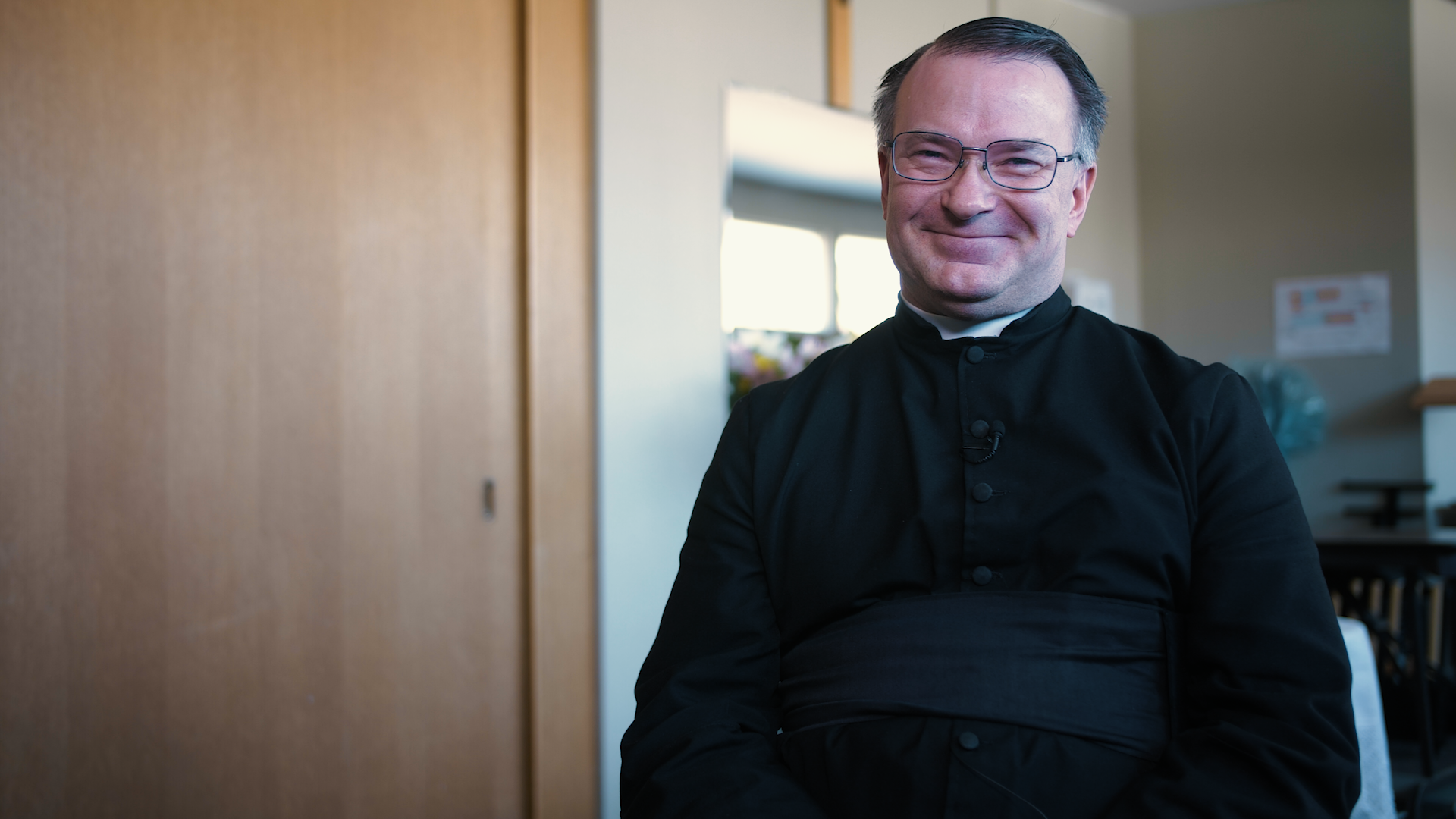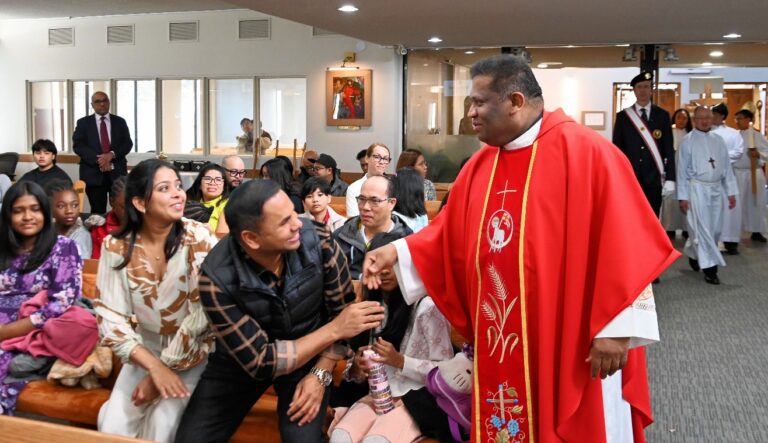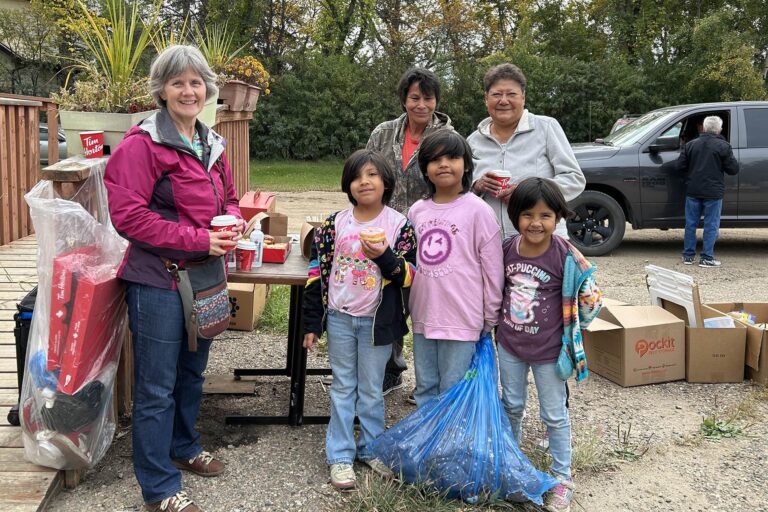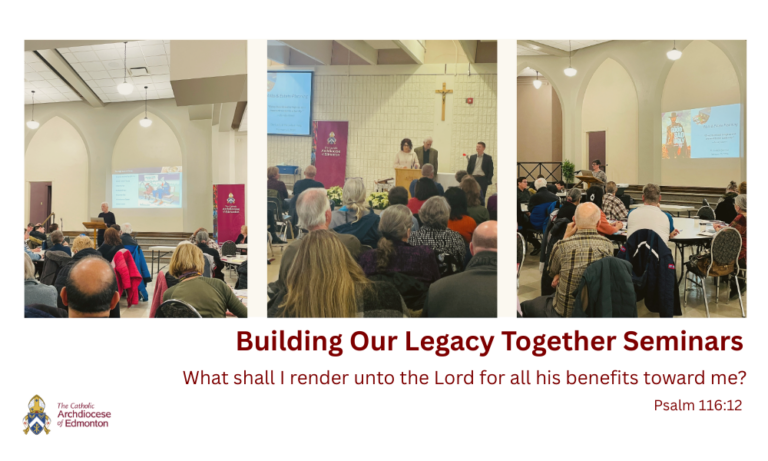Father Christopher Blust serves as the chaplain for the Vital Grandin Chaplaincy, the Latin Mass community of the Archdiocese of Edmonton.
Father Blust grew up in Calgary, Alberta. He was ordained as a priest with the Fraternity of St. Peter in 2001 and he began serving the Latin Mass community in Edmonton in 2020. Watch his episode of Be Not Afraid here.
When did you first think of the priesthood?
Well, that was when I was young, maybe six years old. I remember wanting to imitate the priest who used to offer the Mass. I was quite young at the time and didn\’t even know how to serve the Mass yet.
I started to think more seriously, much later on, when I started to volunteer in the office of the Cathedral of Our Lady of the Holy Rosary in Vancouver. For me, that experience of volunteering helped me to see more of the priesthood, as opposed to just the priest at the altar, at Mass. So that really helped out, especially in seeing some good priests. It was through their preaching, and their actions, that helped me to understand the priestly life.
There was one priest who had really, really amazing sermons. He explained the faith quite well in his sermons on Sundays, and then went outside of Mass talking to us parishioners.
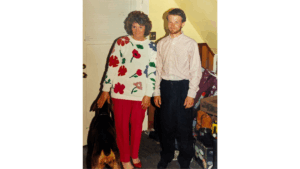
When did your interest in the priesthood turn into a serious intention?
I think I was around 20 years old, when I started thinking of it seriously. That was when I started to get more interested in activities beyond just going to Mass on Sunday. I got involved with a young adult group, as well as volunteering at the cathedral (in Vancouver). I started helping the sacristans, who were doing amazing things in the sacristy and so forth.
When you first moved to Vancouver in your 20s, you were studying forestry at the University of British Columbia. Did that degree impact your vocational discernment?
No, no I didn’t finish that degree. After a while, I realized no, I don\’t think this is for me. Then I worked on a dairy farm for a while, for a Catholic family. That was good, too, because my Catholic boss gave me a good challenge. They helped me to discern, and that work gave me more time as well to volunteer at the cathedral. So that really helped me to draw closer to the priesthood.
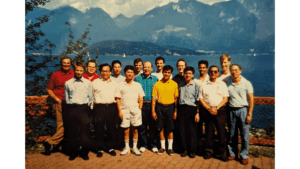
Why were you so determined to volunteer at the Cathedral?
At that time, in my prayer life, I was starting to pray more and I had some good, good Catholic friends. I realized that I wanted to do more for God, for the Church. At the time, I didn\’t think that I had a vocation to the priesthood, but the more time I spent at the cathedral, that started to change.
When I started to think about the priesthood, I also started to realize how long it takes to become a priest – up to eight years. That\’s a long time. I thought, well, that\’s a lot more than going to university for four years. That proved to be a difficult thought for me – that big commitment of time, and potentially my whole life.
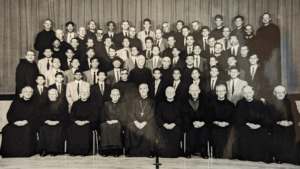
What inspired you to join the seminary?
I had a friend who was preparing to join the seminary and he had talked to me about things. He helped me a lot and we actually started to pray the Breviary together. So that was a good start. Then the Diocese [of Vancouver] had a weekend where the Archbishop came and gave a talk on vocation, on the different categories of discernment, and how we are called to a life of sacrifice. So that was really good.
Although you are ordained as a priest of the Fraternity of St. Peter, you originally entered the diocesan seminary of Christ the King for the Archdiocese of Vancouver. How did that occur?
Yes, I was around 21 or 22. At the time I was discerning between the Archdiocesan priesthood and the Fraternity of St. Peter, which celebrates the Latin Mass.
I grew up being exposed to the Latin Mass. My grandmother was a housekeeper for a retired priest who would still offer the Latin Mass. So that was always in the back of my mind. There was also the Latin Mass in the Archdiocese of Vancouver. There were several of us who were aware and were interested in the Latin Mass. There were four of us, I believe, who eventually went to discern our vocation with a Fraternity of St. Peter.
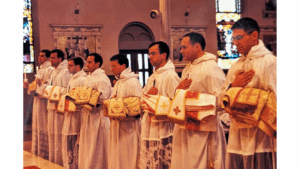
Eventually, I saw that I was more disposed towards the Latin Mass. The monks at Christ the King Seminary really helped with my growing desire to celebrate the Latin Mass, because they had “sung Masses” every day.
The monks at Christ the King are Benedictines and they have a focus on liturgy and the beauty of the liturgy. So that was great while I was there: having them lead Gregorian chant, having the chance to learn the propers of the Mass in Latin. That was a blessing to be there, to see how the Benedictines were methodical in what they did. And it helped us all, in a prayerful way. Those beautiful liturgies changed my day-to-day life. I learned how the Benedictines planned everything so well in liturgy.
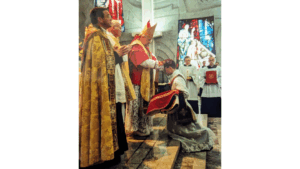
So the Benedictine spirituality that you experienced at seminary had a connection to the spirituality of the Fraternity of St. Peter?
Yes, the Benedictine life is more monastic, because we all have to pray together like the monks, although the monks certainly pray more than the seminarians! Everything was regimented in the Fraternity, just like in the seminary with the Benedictines.
However, if you are with the Fraternity, your life after seminary is much different than the life of a diocesan priest. The Fraternity mandates that you live with at least one other priest, while diocesan priests often live alone.
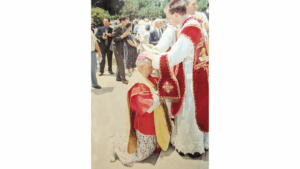
Why did you ultimately join the Fraternity of St. Peter?
After one year at Christ the King seminary, I decided to move to the seminary for the Fraternity of St. Peter (in Nebraska). For me, I made this decision because of my liturgical preference for the Latin Mass, as well as the importance of community life.
I was drawn to the Latin Mass, mainly because of the ability for prayer and meditation during the Mass, which I found to be really, really beneficial. Because of the nature of the Latin Mass – where the Mass is more quiet, as the priest whispers the Canon (the words of the Mass) – there is an ability to pray during the liturgy that I found appealing.
I also joined the Fraternity, because our priests live together, after ordination, and that was important to me. That aspect of community is really good, especially with every priest having different strengths and weaknesses. We have a meal in common every day, and because we spend so much time in fraternity with one another that gives us lots of time for discussing things and bringing up topics and clarification on anything.
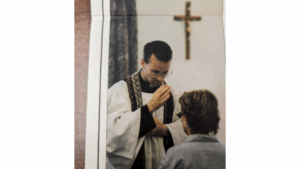
How did your family respond to your decision to become a priest?
At first, they were skeptical because, like Christ said, a prophet is not welcome in his own home. So it is similar to that. But you could also say that family members should be skeptical in order to help you clearly discern a vocation. Are you sure? Because this is for life!
The idea of me becoming a priest was a lot more involvement with the Church than we grew up with. Of course we went to Mass on Sundays, but it was rare to go to Mass outside of Sunday.
However, during my seminary years, the family was more supportive. They could see the difference in me as I attended seminary. Usually, seminary is a steep learning curve and usually it\’s friends and family that notice differences. They notice more virtue growing in you.
Of course, there was also my grandmother who was always praying for me. She was always praying that one of us would have a vocation to the priesthood. She was very prayerful and went to Mass every day. When I was in seminary, she had asked a nun, who taught my mother as a child, to pray for me. Years later, when I was ordained as a priest and my grandmother had passed away, my mother showed me the letters of my grandmother conversing with this nun.
The prayers of my family, my grandmother were very important. God\’s Divine Providence, brings everything together, year after year. God brought me here. All the things in my life fit together and led me here.
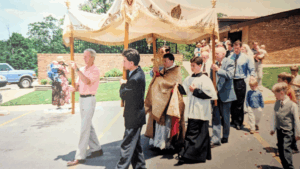
Were you ever fearful of priesthood?
Well, I wouldn\’t call it fearful, but I do remember realizing that this would take a lot. If I do have a vocation, it is going to take many years. “That is eight years of studies,” I remember thinking.
As I joined seminary I thought ’“OK, I\’m not sure if I have a vocation, but I have this desire, I have love for prayer, an understanding of the sacrifice, the lifelong sacrifice. And the priesthood also means that marriage is not possible.”
But I also thought, “OK, if I don\’t have a vocation, I\’ll leave that up to my superiors in the Fraternity.” That\’s part of discernment [when you join a religious order], that some men are told to leave by the superiors, but I guess I showed the perseverance that is needed to stay and they never asked me to leave.
I was always thinking: whatever my superiors say, I\’ll trust. If I was called to the priesthood, and if they thought I was worthy, then so be it, according to the will of God.
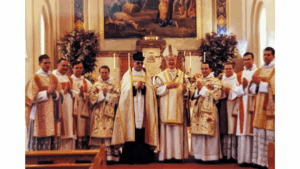
Did you ever discern marriage?
Yes, yes. Before I entered the seminary, I did. One lady was very heartbroken when I told her that “I\’m sorry, but I believe I have a vocation to the priesthood, so I cannot do this anymore.”
Have you ever missed being a biological father?
Actually, no. Seeing that it\’s a special vocation to the married state and to raise children for heaven, I still see that no, that was not my calling. But of course having nephews and nieces kind of dispels any wondering. I see the vocation of marriage and raising children and I know there are special graces for that and they are not mine.
I\’d never think of romanticizing priesthood or the married state, because both are lives of sacrifice, but in different ways.
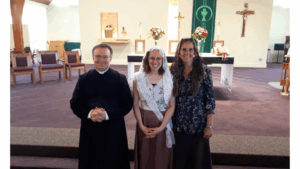
What is one thing that brings you joy in your life as a priest?
Being able to help people live the faith, through the reception of the sacraments of Confession and Holy Communion. Because with the special graces of every sacrament, that helps people to know, love, and serve God, in better and more ways.
I hope that by God\’s grace, whatever I\’m able to do, is to help others, to persevere, to grow stronger, because life is not easy, especially as society is becoming less Christian. Things are getting harder.
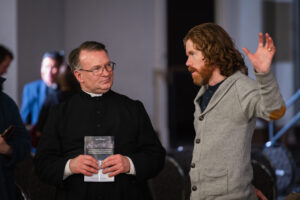
What did you find challenging, when you were first ordained as a priest?
Making sure I was able to get in all my prayers, by the end of the day! Because some days are quite busy, especially with traveling. For many of my assignments, I would be driving a lot, so praying my prayers was sometimes difficult.
Another challenge was the difficulty of learning how to help and guide people, the best way, especially those who are most difficult in character. That\’s something that comes with wisdom and knowledge and understanding and time and experience.
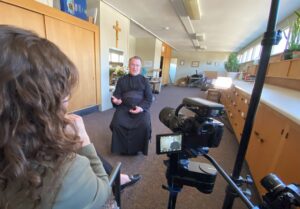
When I was ordained with the Fraternity, we were a young order and we didn\’t have too many older priests. It was good that we did have a few because they would give us examples to follow. That was really helpful. But it was difficult when we only saw them once or twice a year.
In seminary, it was great. We had an older priest who joined us. He was, I think, in his late 70s. He had some really funny stories and quite humbling ones, because he would tell us about the mistakes he had made as a young priest. Yes, when I was first ordained, it was sometimes hard to find a mentor to help guide my work as a pastor.
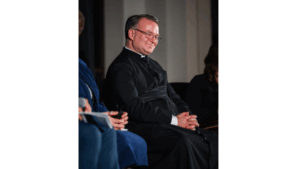
What would you say to a man who is drawn to the priesthood, but he is fearful?
To pray. I\’ve seen that the priesthood is a lifelong sacrifice. It\’s a life where one has to understand that daily prayer, offering the sacraments, will be your life. Yes, you must give up much, but the greatest good we could do is to help the greatest number of people become closer and closer to God.
So yes, pray and have a good spiritual director. And remember: this vocation is by the grace of God and only by the grace of God.
Watch the video version of Fr. Blust’s story here.
To learn more about the Priestly Fraternity of St. Peter.
(This interview has been edited for clarity and brevity)
Jenny Connelly – Archdiocese of Edmonton
Be Not Afraid is a series of videos and companion articles that tell the stories of 12 religious sisters and priests who serve within the Archdiocese of Edmonton.
New episodes are released every Thursday. Subscribe to our YouTube channel to watch new episodes each week.

